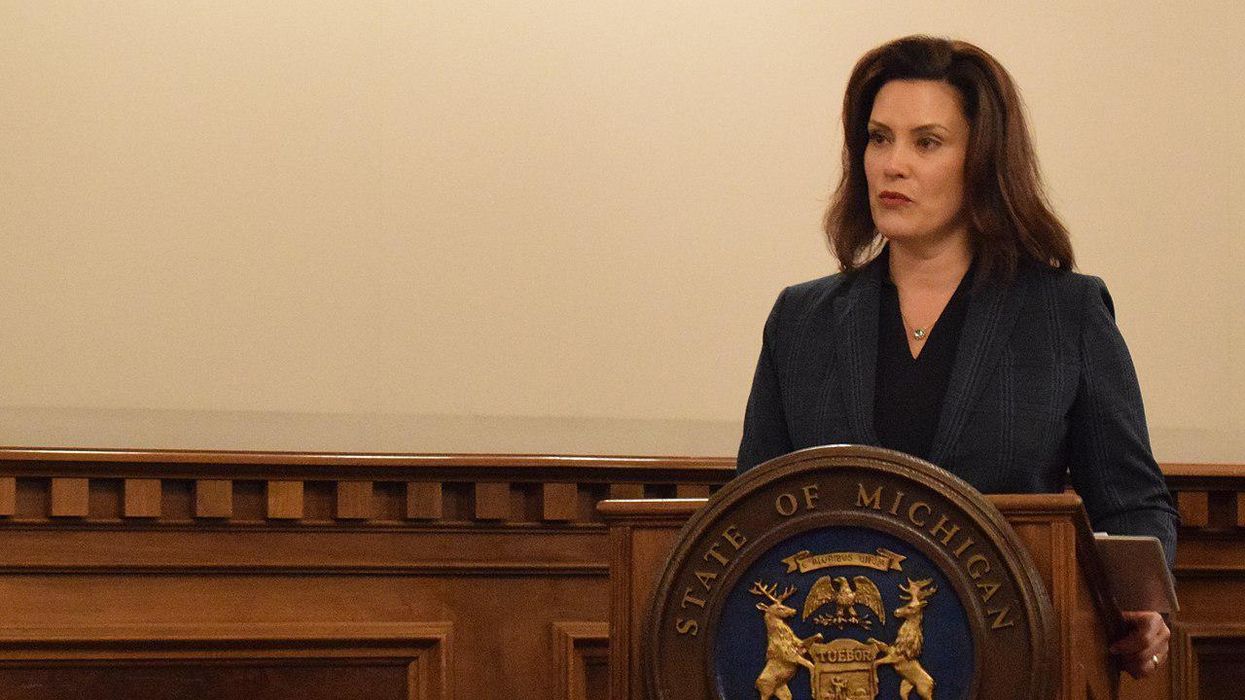Bipartisan Michigan politicos launch effort to elect president by national popular vote: 'It only makes sense'


The United States' Electoral College is puzzling to residents of other democracies, as they use the popular vote to elect their presidents or prime ministers. The most outspoken defenders of the Electoral College tend to be Republicans, but in Michigan, a Democrat and a Republican have joined forces and launched a ballot drive for their state to join a movement to elect presidents by the popular vote.
The Detroit Free Press' Paul Egan reports, "Mark Brewer, an election law attorney who is a former chairman of the Michigan Democratic Party, and Saul Anuzis, a political consultant who is a former chairman of the Michigan Republican Party and former member of the Republican National Committee, announced the National Popular Vote petition drive at a Monday news conference. If enough states sign onto the plan, the U.S. would keep the Electoral College system, but the presidential candidate who wins the nationwide popular vote would be guaranteed the White House.
In a press release, Democrat Brewer said, "We are excited to launch our effort to bring this important proposal to let voters, not politicians, determine if Michigan moves our country toward a national popular vote for president." And Republican Anuzis is quoted as saying, "Every person in Michigan who believes in the principle of one person, one vote for presidential elections should join our effort today."
Defenders of the Electoral College argue that without it, rural states would be ignored by the federal government in Washington, D.C. Some pundits have described the Electoral College as a type of affirmative action that levels the playing field for white rural voters.
Critics of the Electoral College and proponents of the movement to elect presidents by the popular vote, however, believe that it inspires presidential candidates to totally ignore states that they believe they can't win.
Egan notes, "Proponents say awarding the presidency to the candidate with the most votes only makes sense. They say a big advantage of the plan is that it would induce presidential candidates to campaign in states that are normally flyover states, because candidates would be shopping for the most votes they can possibly receive, not just the electoral votes awarded on a winner-take-all basis in big battleground states. It would make it worthwhile for Democrats to campaign in states they are unlikely to win, such as Mississippi, and for Republicans to campaign in places they stand little chance, such as California."
Democrats have won the popular vote in seven of the United States' last eight presidential elections. The two most recent U.S. presidents to lose the popular vote but win the electoral vote were George W. Bush in 2000 and Donald Trump in 2016, although Bush won both the popular vote and the electoral vote in 2004.
"Some Republicans say the GOP would be disadvantaged under a National Popular Vote system," Egan writes. "But Republican proponents such as Anuzis say Trump won the popular vote in the states where he campaigned, and the current system drives down GOP turnout in Democratic states such as California, where many Republicans feel their votes do not matter."